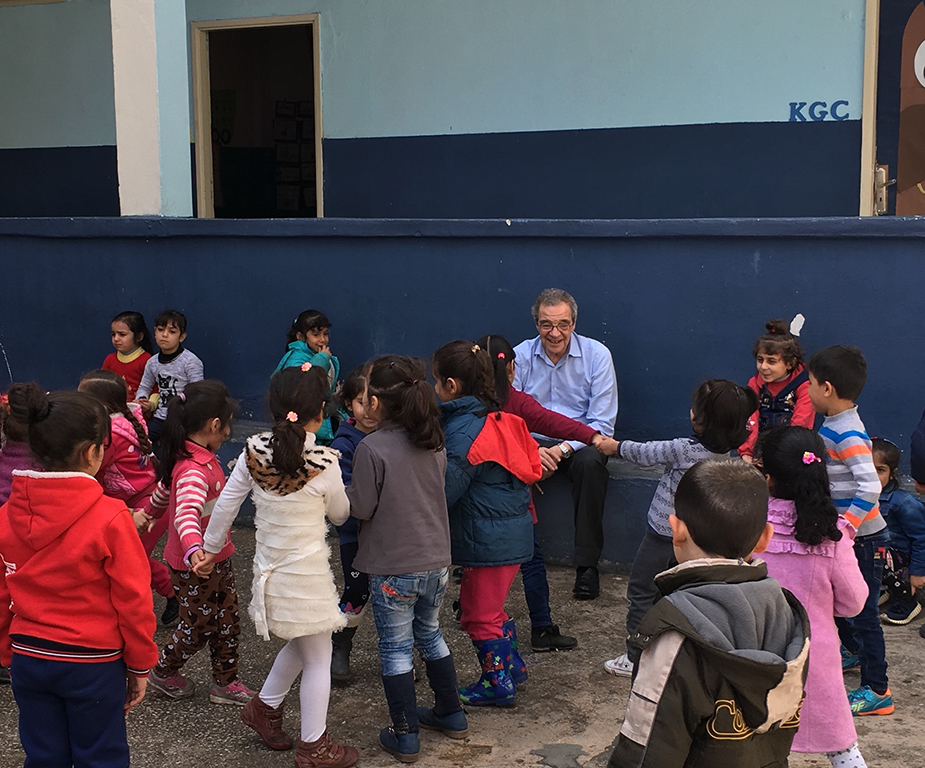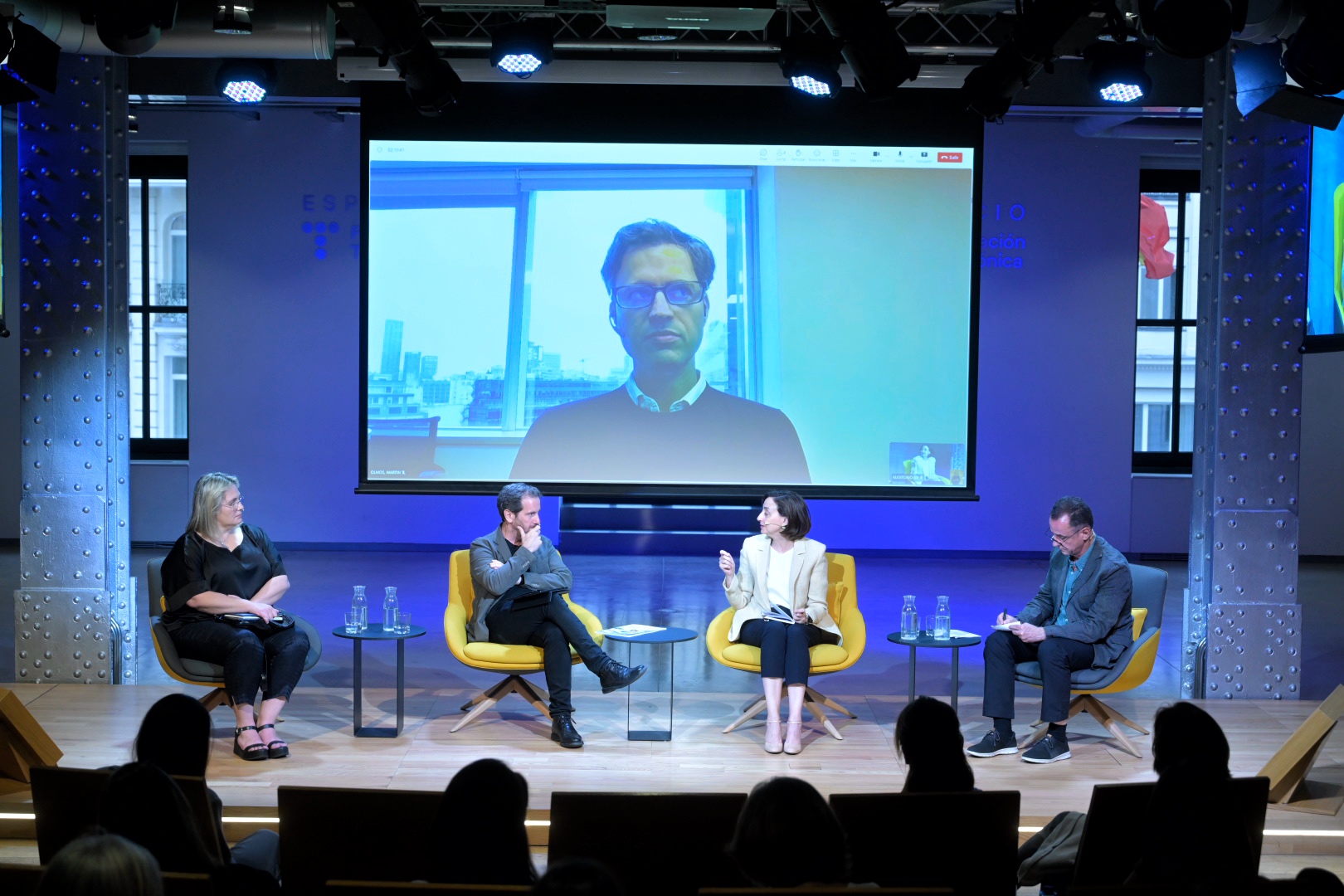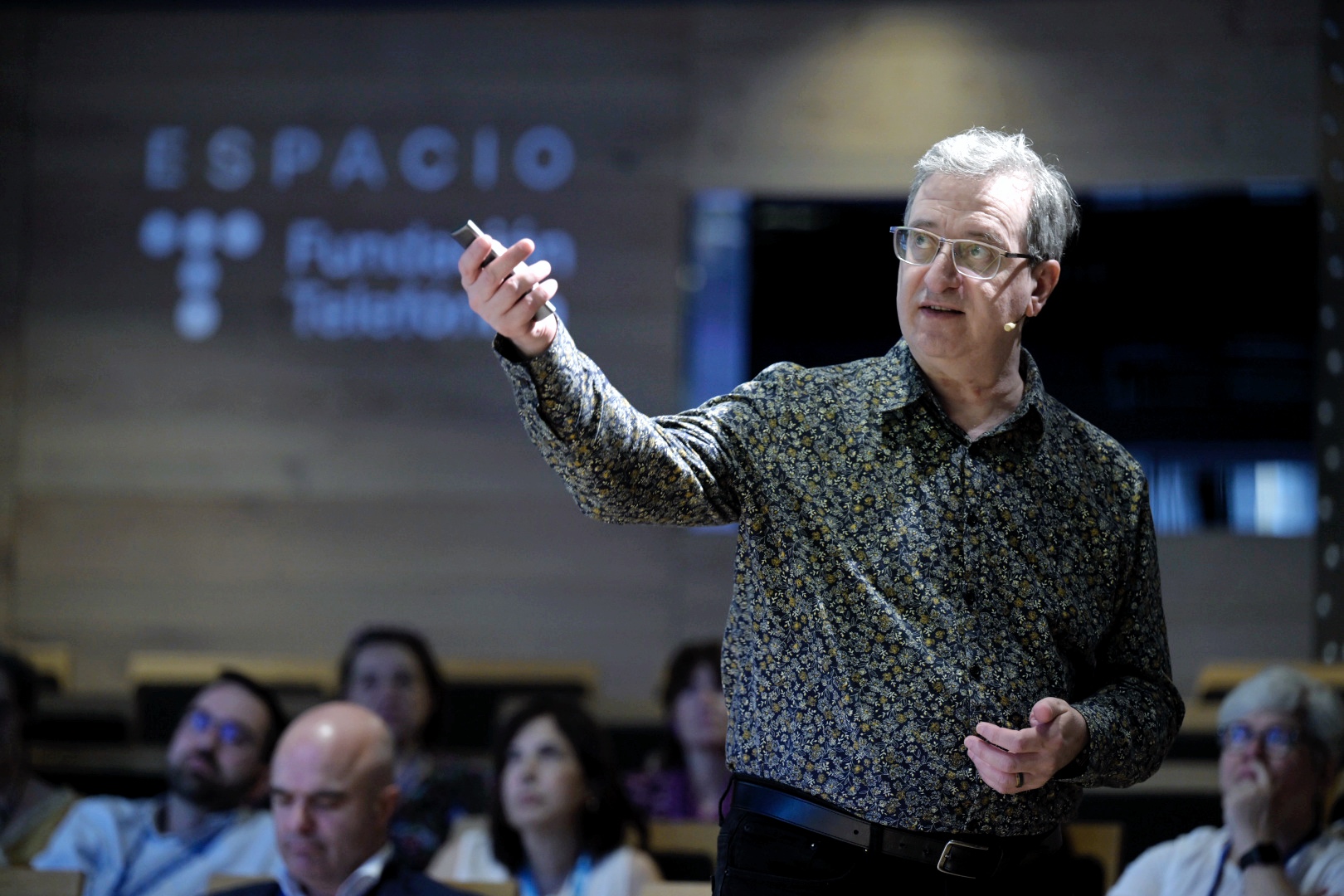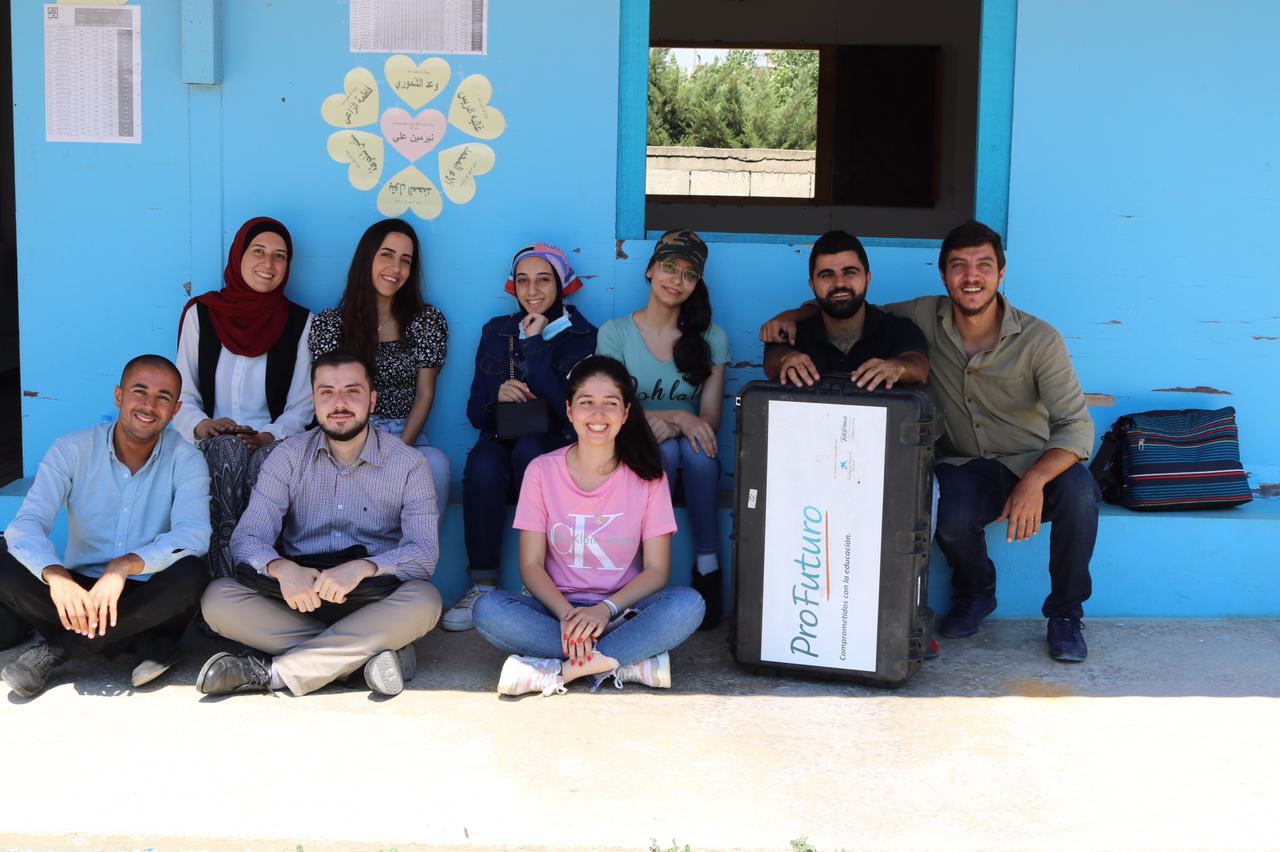ProFuturo continues with its fact-finding visits throughout the world, to bring quality education through technology to the world’s most vulnerable people.
- A delegation of Fundación Telefónica and “la Caixa” Banking Foundation led by César Alierta has visited refugee camps in the Lebanon. The aim was to learn the educational reality of the country, and to introduce the digital education of ProFuturo, an initiative of both institutions.
- ProFuturo met with political, education and social leaders of the Lebanon to study future collaborations. This project is driven by César Alierta himself, as president of Fundación Telefónica, and Isidro Fainé, president of “la Caixa” Banking Foundation.
- Over recent years, according to data from ACNUR, the Lebanon has received over a million Syrian refugees, of which 79% are women and children.
On this occasion, César Alierta, president of Fundación Telefónica and trustee of “la Caixa” Banking Foundation; Sofía Fernández de Mesa, director of the ProFuturo Foundation; Àngel Font, director of Strategy and People of “la Caixa” Banking Foundation; and José María Sanz-Magallón, managing director of Fundación Telefónica, visited the Lebanon to promote access to ProFuturo digital education for Syrian refugees and Lebanese children.
During the visit, ProFuturo met with political, education and social leaders of the country, to look into new ways of collaboration. They visited various schools and education centres in both East Beirut and in the Bekaa valley.
Both Lebanese and Syrian teachers work at these schools. The schools are in the same area as the refugee camps, where the majority of pupils come from. There are around 500/600 children at each school, split over two shifts, one in the morning from 8.00 am to noon and another in the afternoon from noon to 4.00 pm.
Over the last few years, according to ACNUR data, Lebanon has received approximately one million Syrian refugees, of which it is calculated that 79% are women and children. The Lebanese authorities believe there are a further half million unregistered Syrians. The Lebanon also continues to take in people from other countries. Refugees are mainly concentrated in coastal towns and in the region of Bekaa.

Education technology for social inclusion
In a world where it is estimated that over 50 million children do not attend school, and that 24 million will never go to school, digital education, understood as the use of information technology to provide easy access to quality content, can improve levels of education in the most remote areas and in the most vulnerable contexts. This is the case in areas of conflict, for example, where the majority of unschooled children live.
According to César Alierta, this is the reason why ProFuturo was founded with the goal of providing “equal opportunities to girls and boys in vulnerable environments, through personalised and innovative quality education, able to transform their learning and to provide them with tools for the future”. ‘We are convinced that we have the best opportunity of using technology to speed up development and social well-being of citizens, through digital education’, added Mr. Alierta.

A project presented in 13 Latin American and African countries
ProFuturo was created with the aim of transforming the education of 10 million children by 2020. It currently has active projects in thirteen countries, including Angola, Uganda, Colombia, Peru, Kenya, Tanzania and Guatemala. Also, there are already 326 schools and over 1,500 teachers who are implementing the digital education model and around 3 million children have received quality digital education through the education programmes of Fundación Telefónica.
In 2016, Profuturo:







